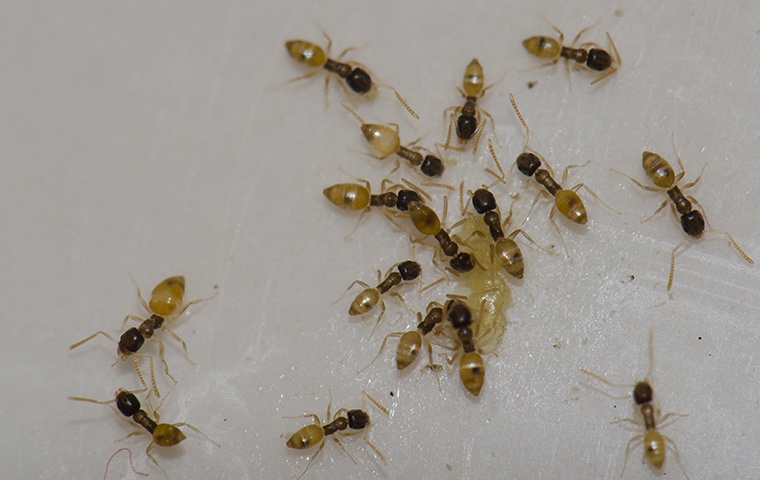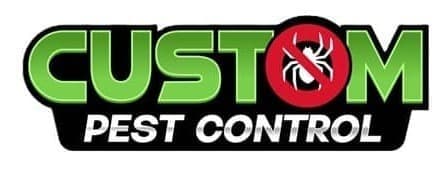What are ants?
Ants are social insects that live and work together in large colonies. There are more than 12,000 species of ants living throughout the world, and these small insects are one of the most common invaders inside our Huntsville, Alabama homes and businesses. An ant colony consists of reproductives and workers. Males and queens are responsible for reproduction. Sterile females (workers) make up the bulk of the colony and are responsible for gathering food, caring for the young, and defending the colony.

In North Alabama, Argentine ants and fire ants are two of the most common and problematic ant species. Argentine ants are small, black ants you'll see moving together in large, wide trails, and their massive colonies consist of multiple nesting sites. Fire ants are tiny, reddish-brown ants that are known for the burning pain their stings create.
Are ants dangerous?
Ants do not belong living in large numbers in our yards, homes, or businesses. While most species, including Argentine ants, aren’t dangerous, they are a nuisance. Ants contaminate food, invade in large numbers, and are tricky to control and eliminate. Some species, however, are dangerous, whether to people or property; the fire ant is an example of a dangerous ant. They deliver painful venom-filled stings when defending themselves or their colony. Fire ants are quick to anger, and merely walking by their nest is enough to warrant an attack. They are also problematic because they invade and damage electrical and farm equipment.
Why do I have an ant problem?
Ants gravitate to properties that offer places for them to forage for food and nest. For instance, Argentine ants seek moist areas, and their presence around your home can indicate an underlying moisture issue that you need to address. Fire ants prefer to nest outside in open sunny areas, and they often choose our lawns. The biggest attractant for ants to any property is its easy access to food sources. Things like pet food, open garbage cans, compost, and gardens are popular foraging sites for ants.
Where will I find ants?
You can find worker ants outdoors foraging for food in lawns, mulch, and garden areas, or traveling together in groups along sidewalks, driveways, and fence lines. Their outdoor nesting locations are usually located in the soil under woodpiles, next to sidewalks or foundations, under landscape ties, or in rotting logs.
Ants often move into homes and other structures while they forage for food or to escape harsh weather conditions. Ants usually nest out of sight in hard to reach areas like inside insulation, behind wall voids, near hot water pipes, under floors, or in crawlspaces.
How do I get rid of ants?
Get rid of ants by partnering with the trusted experts at Custom Pest Control. For over 20 years, we have been helping home and business owners maintain pest-free properties. If you are looking for a personal approach to pest control, look no further.
At Custom Pest Control, we customize our pest control programs to meet the unique needs of each of our customers. Let our family protect your family from North Alabama’s toughest pests! For more information about our ant control services, reach out to Custom Pest Control, and speak with one of our friendly professionals today.
How can I prevent ants in the future?
The best way to prevent problems with ants, and to get ants out of your Huntsville home, is to partner with a pest control professional and implement the following prevention tips in and around your North Alabama home:
- Cut back tree branches and overgrown vegetation from the exterior of your house.
- Use caulk to repair cracks in the foundation and exterior walls of your home.
- Place weatherstripping around windows and doors.
- Install door sweeps on exterior doors.
- Place a stone or crushed rock barrier between any soil and your home’s foundation.
- Place tight-fitting lids on trash cans and compost bins. Always rinse out jars and cans before placing them in recycle bins.
- Repair leaky pipes and fixtures.
- Use dehumidifiers to dry out basements and reduce humidity levels in your home.
- Keep dry goods in containers with airtight lids.
